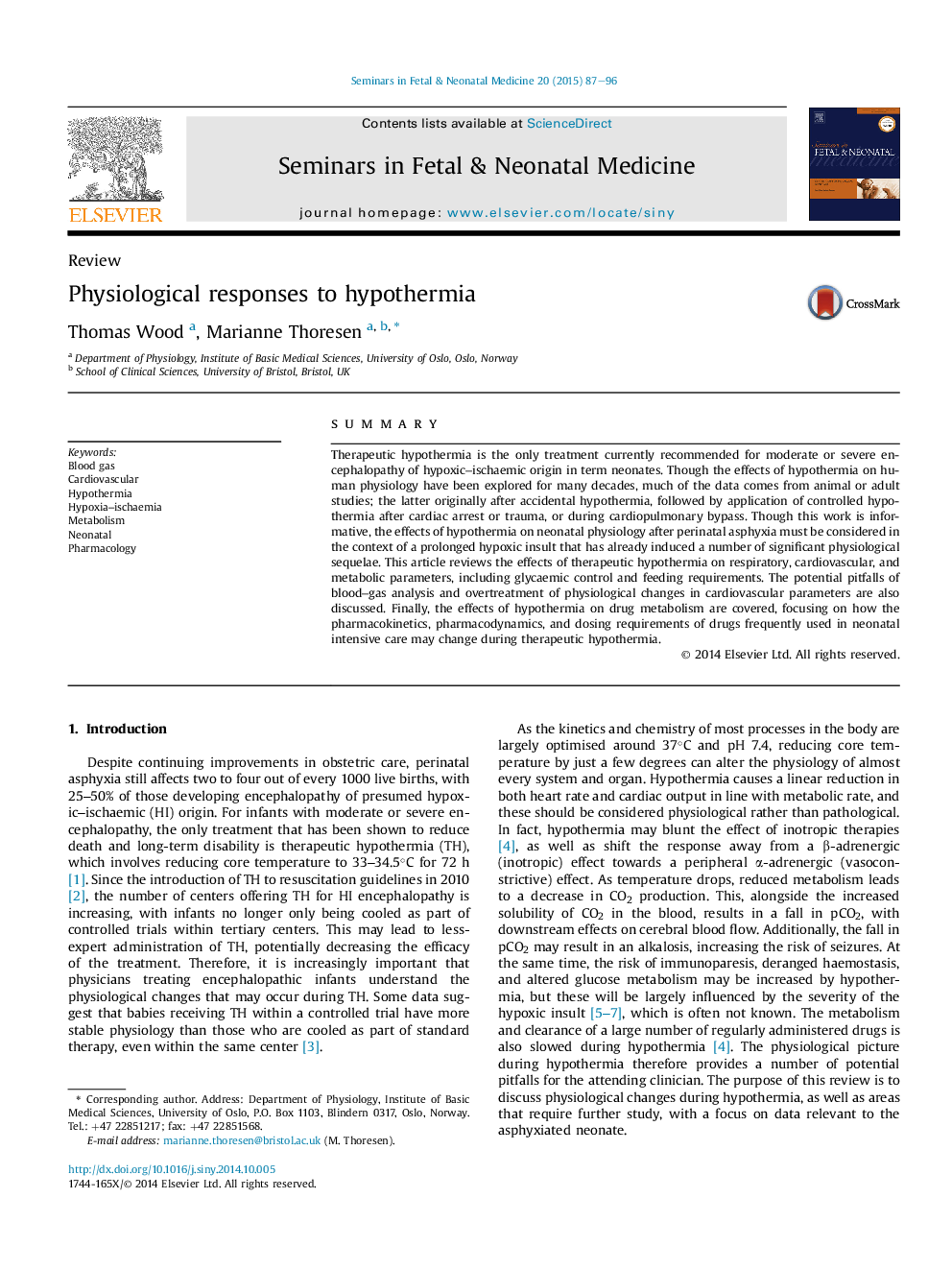| Article ID | Journal | Published Year | Pages | File Type |
|---|---|---|---|---|
| 3974038 | Seminars in Fetal and Neonatal Medicine | 2015 | 10 Pages |
SummaryTherapeutic hypothermia is the only treatment currently recommended for moderate or severe encephalopathy of hypoxic‒ischaemic origin in term neonates. Though the effects of hypothermia on human physiology have been explored for many decades, much of the data comes from animal or adult studies; the latter originally after accidental hypothermia, followed by application of controlled hypothermia after cardiac arrest or trauma, or during cardiopulmonary bypass. Though this work is informative, the effects of hypothermia on neonatal physiology after perinatal asphyxia must be considered in the context of a prolonged hypoxic insult that has already induced a number of significant physiological sequelae. This article reviews the effects of therapeutic hypothermia on respiratory, cardiovascular, and metabolic parameters, including glycaemic control and feeding requirements. The potential pitfalls of blood‒gas analysis and overtreatment of physiological changes in cardiovascular parameters are also discussed. Finally, the effects of hypothermia on drug metabolism are covered, focusing on how the pharmacokinetics, pharmacodynamics, and dosing requirements of drugs frequently used in neonatal intensive care may change during therapeutic hypothermia.
